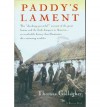Currently reading
Paddy's Lament, Ireland 1846-1847: Prelude to Hatred
Pivot: The Only Move That Matters Is Your Next One
When in French: Love in a Second Language
Beyond the Job Description: How Managers and Employees Can Navigate the True Demands of the Job
Vision and Art: The Biology of Seeing
Achieving Your Potential As A Photographer: A Creative Companion and Workbook
Reclaiming Conversation: The Power of Talk in a Digital Age
Picture Perfect Practice: A Self-Training Guide to Mastering the Challenges of Taking World-Class Photographs (Voices That Matter)
Man's Search for Meaning
Terms of Service: Social Media and the Price of Constant Connection
A Journey Through American Literature
 I got the most from the “beginnings,” “travel,” and “autobiography” chapters. “Teachers of American literature have long understood the value travel writing holds for the history of colonial American writing, but the novels and short stories and poetry of the 19th and 20th centuries often muscle books of travel off the syllabus. They shouldn’t. Any piece of writing that approaches excellence can be considered literature regardless of genre. Indeed, there may be more literature in William Bartram’s description of an alligator attack, Francis Parkman’s account of a thunderstorm traversing the plains, or John Stephens’s narrative of hunger in the desert that can be found in any number of 19th century novels. American travel writing can fire the imagination and take readers round the globe.” P.48Interesting to learn that the Federal Writers’ Project, which formed part of FDR’s Works Progress Administration, hired writers to fan out across the nation, interviewing people and researching places. The result was the American Guide series, which consists of beefy guidebooks for every state and a variety of specialized volumes. … Since the guides were published anonymously, the efforts of the individual contributors have been obscured, but the separate volumes possess a general literary quality otherwise rare for guidebooks.
I got the most from the “beginnings,” “travel,” and “autobiography” chapters. “Teachers of American literature have long understood the value travel writing holds for the history of colonial American writing, but the novels and short stories and poetry of the 19th and 20th centuries often muscle books of travel off the syllabus. They shouldn’t. Any piece of writing that approaches excellence can be considered literature regardless of genre. Indeed, there may be more literature in William Bartram’s description of an alligator attack, Francis Parkman’s account of a thunderstorm traversing the plains, or John Stephens’s narrative of hunger in the desert that can be found in any number of 19th century novels. American travel writing can fire the imagination and take readers round the globe.” P.48Interesting to learn that the Federal Writers’ Project, which formed part of FDR’s Works Progress Administration, hired writers to fan out across the nation, interviewing people and researching places. The result was the American Guide series, which consists of beefy guidebooks for every state and a variety of specialized volumes. … Since the guides were published anonymously, the efforts of the individual contributors have been obscured, but the separate volumes possess a general literary quality otherwise rare for guidebooks.













